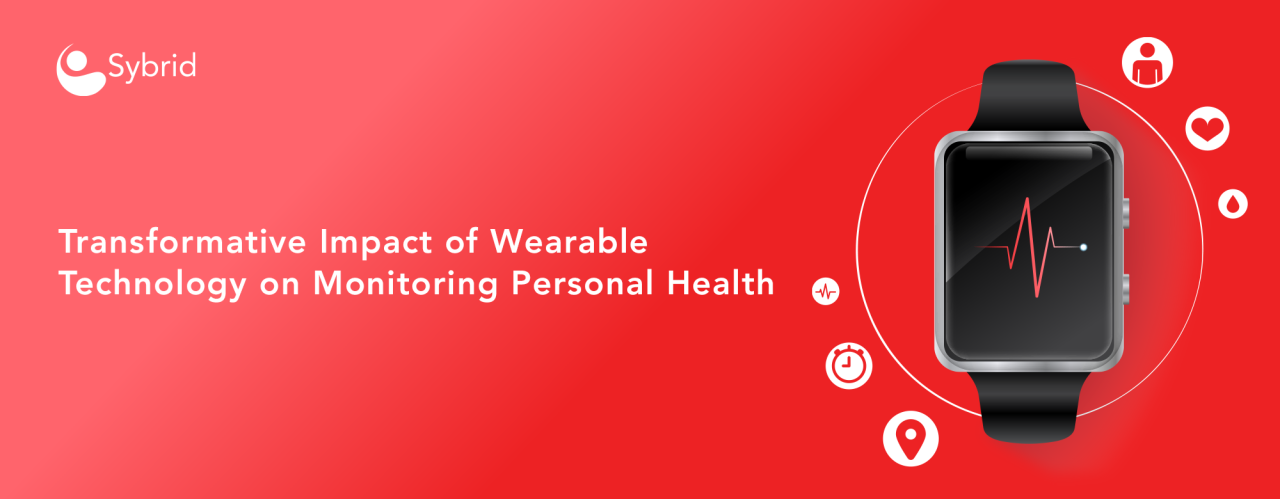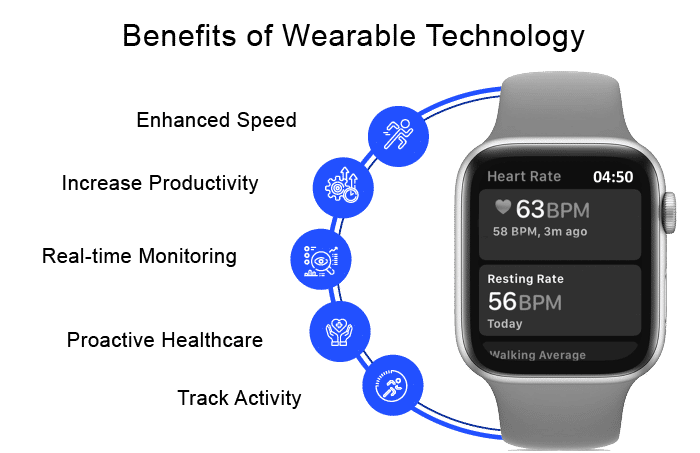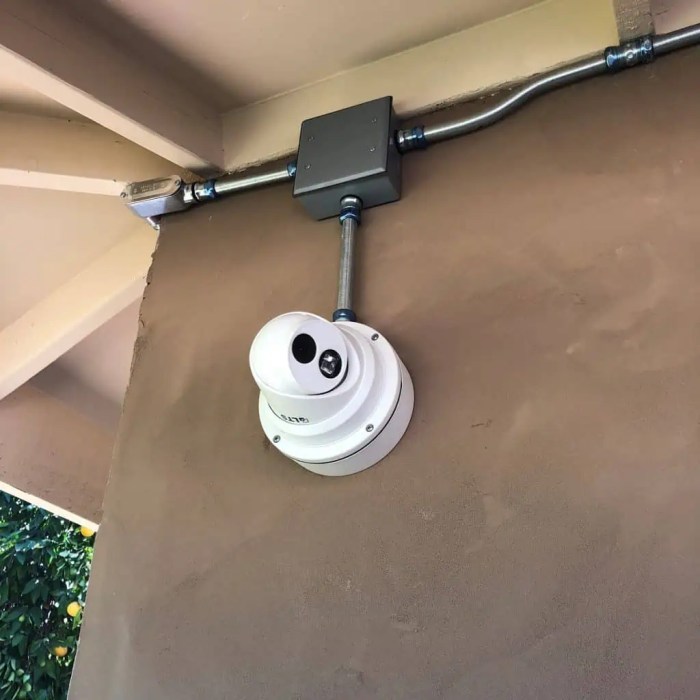Benefits of personalized health tracking devices: A Comprehensive Guide
Exploring the Benefits of personalized health tracking devices sheds light on the significant impact these tools have on individuals' well-being. From monitoring physical activities to providing valuable insights, these devices play a crucial role in enhancing overall health and fitness.
This guide will delve into the various types of personalized health tracking devices available, their benefits for physical and mental health, the importance of personalized data, and how they support remote monitoring and healthcare. Let's uncover the advantages of integrating these devices into your lifestyle.
Importance of Personalized Health Tracking Devices
Personalized health tracking devices play a crucial role in promoting overall well-being by providing individuals with real-time data on their health status. These devices help users monitor various aspects of their health proactively, allowing them to make informed decisions to improve their overall quality of life.
Monitoring Health Parameters
Personalized health tracking devices enable individuals to monitor key health parameters such as heart rate, blood pressure, sleep patterns, and physical activity levels. By tracking these metrics regularly, users can identify any potential issues early on and take necessary steps to address them before they escalate.
Tailoring Health and Fitness Plans
The personalized data collected by these devices can be used to tailor health and fitness plans to suit individual needs and goals. By analyzing the data provided by the devices, users can make adjustments to their diet, exercise routines, and lifestyle habits to achieve optimal health outcomes.
Types of Personalized Health Tracking Devices

Personalized health tracking devices come in various forms, each offering unique features to cater to different needs. Let's explore some popular options available in the market and compare their functionalities.
1. Smartwatches
Smartwatches have gained popularity for their versatility in health tracking. They offer features like heart rate monitoring, sleep tracking, step counting, and even ECG readings in some advanced models. Smartwatches also allow users to receive notifications, make calls, and track various fitness activities seamlessly.
2. Fitness Trackers
Fitness trackers are dedicated devices focused primarily on monitoring physical activity and exercise. They provide detailed insights into steps taken, distance covered, calories burned, and active minutes. Some fitness trackers also offer features like GPS tracking, heart rate monitoring, and workout guidance for personalized fitness goals.
3. Health Monitoring Apps
Health monitoring apps are software-based solutions that can be used on smartphones or tablets. These apps offer a wide range of functionalities, including tracking daily activities, monitoring nutrition intake, setting fitness goals, and analyzing sleep patterns. Health monitoring apps often sync with wearable devices to provide a comprehensive overview of an individual's health and wellness.In conclusion, the choice of personalized health tracking device depends on individual preferences, lifestyle, and health goals.
Whether it's a smartwatch, fitness tracker, or health monitoring app, each type of device offers unique benefits to help users stay on track with their health and wellness journey.
Benefits for Physical Health
Personalized health tracking devices offer a range of benefits for physical health, helping users monitor their activity levels and make positive lifestyle changes.
Tracking Physical Activities
- Personalized health tracking devices enable users to track various physical activities such as steps taken, calories burned, and distance covered throughout the day.
- By providing real-time data on these metrics, users can gain a better understanding of their activity levels and make adjustments to meet their fitness goals.
Encouraging Active Lifestyles
- These devices serve as a motivator for users to stay active by setting daily activity goals and sending reminders to move throughout the day.
- The gamification aspect of personalized health tracking devices, such as earning badges or competing with friends, encourages users to engage in physical activities regularly.
Improving Physical Health Outcomes
- Regular use of personalized health tracking devices has been linked to improved physical health outcomes, such as weight management, increased fitness levels, and reduced risk of chronic diseases.
- By providing insights into physical activity patterns and progress over time, these devices empower users to make informed decisions about their health and well-being.
Benefits for Mental Health
Personalized health tracking devices can play a significant role in improving mental well-being by helping individuals manage their stress levels and promote mindfulness. These devices offer features that support relaxation and mental wellness, ultimately contributing to a better overall emotional balance
Features for Mental Wellness
- Guided breathing exercises: Some health tracking devices provide guided breathing exercises to help users relax and reduce stress levels.
- Stress tracking: These devices can monitor stress levels throughout the day, providing insights on when users may need to take a break or practice relaxation techniques.
- Sleep tracking: Adequate sleep is crucial for mental health, and personalized health trackers can help users monitor their sleep patterns and make adjustments for better rest.
- Activity reminders: Staying active is essential for mental well-being, and these devices can send reminders to encourage movement and physical activity.
Personalized Health Data and Insights
Personalized health tracking devices not only collect data on physical and mental health but also provide valuable insights based on this data. These insights are crucial in helping individuals make informed decisions about their health and well-being.
Collection and Analysis of Individual Health Data
Personalized health tracking devices use various sensors to collect data such as heart rate, sleep patterns, activity levels, and even blood pressure. This data is then analyzed using algorithms to provide meaningful insights to the user.
- Heart Rate Monitoring: These devices track heart rate throughout the day, allowing users to understand how their heart responds to different activities and stressors.
- Sleep Tracking: By monitoring sleep patterns, users can identify trends and make adjustments to improve the quality of their sleep.
- Activity Levels: Tracking daily physical activity helps users set goals and track progress towards a healthier lifestyle.
- Blood Pressure Monitoring: Some devices can even measure blood pressure, providing valuable data for individuals managing hypertension or other cardiovascular conditions.
Importance of Personalized Insights
Receiving personalized insights based on tracked data is essential for understanding one's health status and making informed decisions. These insights can help users identify patterns, set achievable goals, and monitor progress towards better health outcomes.
- Identifying Health Trends: Insights can reveal patterns in health data, such as spikes in heart rate during stressful situations or poor sleep quality after consuming certain foods.
- Setting Realistic Goals: By understanding their health data, users can set realistic goals for physical activity, sleep, and nutrition, tailored to their individual needs.
- Monitoring Progress: Regular insights allow users to track their progress over time and make adjustments to their lifestyle choices for better health outcomes.
Remote Monitoring and Healthcare Support
Personalized health tracking devices play a crucial role in remote monitoring of health conditions, allowing individuals to track their health metrics and share real-time data with healthcare providers for better management and support.
Real-time Health Data Sharing
- Users can easily share their health data, such as heart rate, activity levels, and sleep patterns, with healthcare professionals for remote monitoring and assessment.
- The ability to transmit real-time data enables healthcare providers to make timely interventions and adjustments to treatment plans based on the individual's current health status.
- Remote monitoring through personalized devices offers a convenient way for patients to stay connected with their healthcare team without the need for frequent in-person visits.
Benefits of Remote Healthcare Support
- Remote healthcare support facilitated by personalized tracking devices allows for proactive monitoring of chronic conditions, leading to early detection of potential health issues and prevention of complications.
- Patients can receive personalized feedback and recommendations from healthcare providers based on the data collected through the tracking devices, promoting better adherence to treatment plans and lifestyle modifications.
- Access to remote healthcare support can improve patient outcomes, reduce hospital readmissions, and enhance overall quality of care by enabling continuous monitoring and support outside traditional healthcare settings.
Final Review

In conclusion, personalized health tracking devices offer a holistic approach to improving health outcomes by empowering individuals with personalized data and insights. By leveraging the features of these devices, users can proactively manage their well-being and stay connected with healthcare providers for optimal support.
Frequently Asked Questions
How do personalized health tracking devices promote mental well-being?
Personalized health tracking devices offer features that help manage stress levels, promote mindfulness, and enhance mental wellness through targeted activities and reminders.
Can personalized health tracking devices be used for remote monitoring of health conditions?
Yes, these devices enable users to share real-time health data with healthcare providers, allowing for remote monitoring and timely interventions.




